Information and resources for the evidence-based SLP.

All Write: A Review of Clinical Writing for Dysphagia Diagnostics
Dysphagia assessments by speech-language pathologists (SLPs) are the cornerstone of quality of care for patients with dysphagia. However, SLPs have historically been misunderstood or unheard possibly due to inefficient format, unclear terminology, or because of a lack of strong clinical documentation. Utilizing language that all healthcare providers can understand will inevitably lead to consistent care, improved quality of care, and buy-in from our colleagues. Kelsey has carefully crafted a course to teach the medical SLP how to talk the talk and walk the walk that will leave your physicians wowed by your craft!

The First Step to FEES Competency: A Review of Evolutionary Education Solutions’ Intro to FEES
I completed my basic FEES course in 2017 and completed my competency training in 2019. Even though I had already taken basic and advanced FEES courses as well as having completed my FEES competency, I knew I needed to take this course!
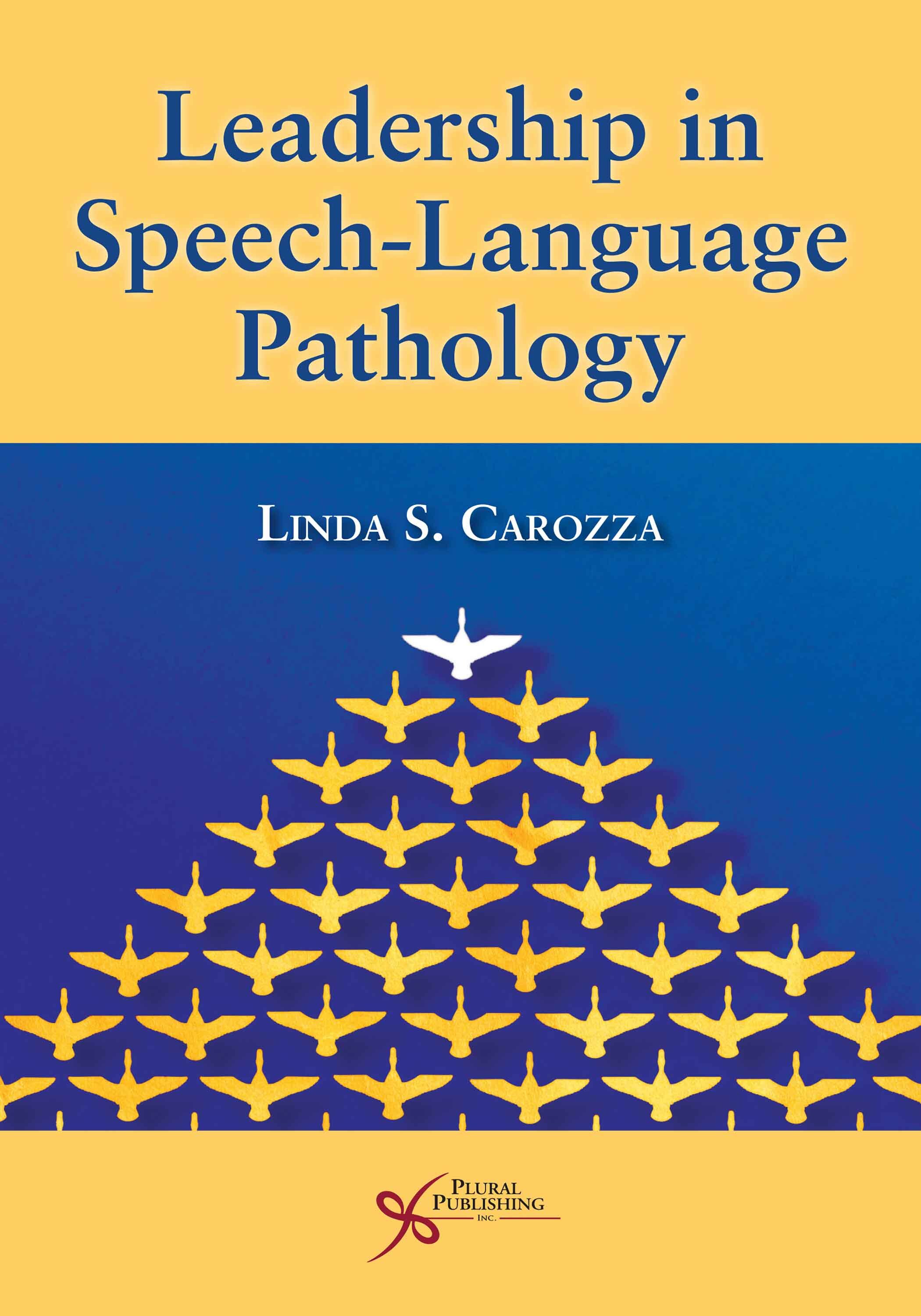
Learn to Lead: A Review of Leadership in Speech-Language Pathology
Reflecting on my experiences in graduate school, I did not have access to formal leadership instruction. I believe this put me at a disadvantage when I began my career in the medical setting and had aspirations of being a rehabilitation director. Unfortunately, my experiences are not unique and many SLPs who are seeking to transition into leadership, managerial, or administrative positions may find themselves at a similar disadvantage. This is why I am so grateful to Linda Carozza for writing this book! Leadership in Speech-Language Pathology is an excellent resource for emerging leaders seeking guidance as they begin their leadership journey and experienced leaders who are looking to provide more of a positive impact on their employees and overall work environment.

Med SLP 1-2-3: A Review of Medical Setting Considerations for the SLP
Medical Setting Considerations for the Speech-Language Pathologist is an excellent resource for graduate students, new clinicians, SLPs looking to change medical settings, and seasoned clinicians who wish to learn more about neuroimaging or the impact of specific medications on their patients' overall function. This book provides information including; the different team members with which the med SLP may come into contact, the types of patients med SLPs may encounter in various settings as well as assessments and interventions which may be considered based on the specific impact on communication, swallowing, and cognition, various neuroimaging techniques, medications which may impact overall patient function, and precautions to ensure the safety of the SLP and their patients.

What's the Deal with Dementia? An Overview of Dementia Diagnoses and Clinical Presentations
In this article, we will review what dementia is and how it is diagnosed as well as identify the most common dementia subtypes along with their clinical and neurological presentations. The overall goal of this series is to empower medical SLPs with the foundational knowledge to provide evidence-based care for people with dementia as well as increasing their confidence in working with a challenging but rewarding patient population.
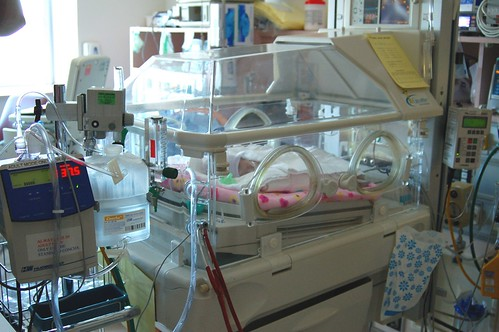
Tiptoe Through the NICU: Fundamentals of Neonatal Feeding and Swallowing
Recently I started to reflect on NICU Awareness Month and how far my tiny rural hospital has come in managing neonatal care. When I was hired in the spring of 2016, we had no neonatal therapy program for our Level II NICU with our equipment and interventions leaving much to be desired. With the close teamwork of our Nursing Manager of Pediatrics, DOR, OT, and myself, we initiated a quality improvement project to start our own Level II NICU program in the spring of 2017. A few things became apparent, namely, we had minimal to no experience and training in the NICU. We were often left asking ourselves, “Where do we start?” “How do we get the knowledge we need to get this program off the ground?” “What should we expect?” In this second post of our Tiptoe Through the ICU series, we will provide a rundown of the fundamentals of neonatal feeding and swallowing and NICU program development.

The ABCs of AAC: Debunking Major Myths of Augmentative and Alternative Communication in Pediatrics
Of the many different areas of expertise we are expected to have as speech-language pathologists, Augmentative and Alternative Communication (AAC) is one not often taught in depth by many graduate programs. Picture this scenario: a four-year-old nonverbal patient with Autism walks in your door after receiving many years of intensive traditional language therapy and you know he needs AAC. But how do you know if your patient is “ready?” How do you establish buy-in from the parents? Where do you even start? These are just some of the many questions asked by fellow SLPs. In addition to these questions, major “myths” regarding AAC have also been propagated within and outside of the field of speech pathology, further contributing to the confusion. In this article, three of the top myths regarding AAC will be debunked in an effort to provide a better understanding of the skills required to successfully utilize AAC, appropriate candidates for AAC, and the interaction between AAC and the development of oral language skills.

Dear SLP: Don't Hate, Negotiate! How to Advocate for the Salary You Deserve
The fact that our graduate programs don't prepare us to advocate for ourselves in a corporate/business model makes my blood boil! Like it or not, many hospitals and rehabilitation companies work like businesses and corporations. What we don't know as healthcare workers is hurting us in our ethical guts and our bank accounts. There are experts far more adept at writing about advocating for more ethical practices in healthcare- so I'll leave that up to them. What I can offer, however, is some solid advice on how to negotiate your salary/pay rate.

Tiptoe Through the NICU: Common NICU Terminology and Typical Vital Signs
Neonatal therapists provide direct patient care and services for premature and/or medically complex infants in the Neonatal Intensive Care Unit. Our goal as neonatal therapists is to support the infant's brain/mental health, maximize developmental milestones, and support family interaction with the neonate. To be successful in neonatal therapy, healthcare professionals must be committed to understanding scientific knowledge and continue their development in comprehension of this area. We've compiled a list of common NICU terminology to get you started on your journey into the NICU.

Journey to the ICU- Insane in the Drain!
In this installment, we’ll go over some of the more common drains that a clinician may encounter in the ICU as well as precautions/considerations for each one. Drains are placed to remove bodily fluids whether for waste management, post surgery, and/or to regulate pressure.
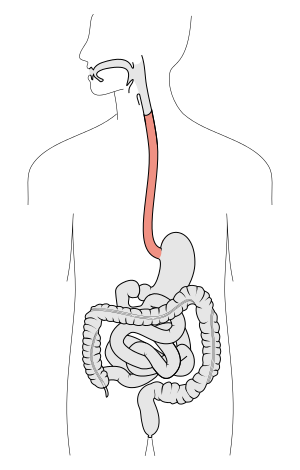
Down the Tube: The Role of the SLP in Esophageal Cancer
Esophageal cancer has been associated with high levels of morbidity and mortality, with aspiration pneumonia representing the primary complication leading to early death in ER patients. Symptoms of esophageal cancer can present similarly to those seen with oropharyngeal cancer and have a high likelihood of some type of baseline oropharyngeal dysphagia prior and following surgical management. It's time for the medical SLP to start reconsidering our role in management of this population and push to be an important player in the management of esophageal cancer.

Dear SLP- The Top 15 Things You Need to Do Before, During, and After FEES Competency Training
Becoming competent in flexible endoscopic evaluation of swallowing (FEES) was a definite career goal of mine. I always said it was "on my list of things" and figured it would be somewhere down the line in my career. However, when I was offered the opportunity to independent contract for a well known and reputable mobile FEES company in my area, I couldn't say no! I soon found myself on the fast track to reaching one of my ultimate professional goals! Within one week, I found myself on a plane to Northern Louisiana where I completed my competency training with Hillary Cooper of North Louisiana Swallow Solutions. I can say without hesitation that my FEES training was the most difficult, anxiety inducing, educational, and rewarding thing I have done in my professional career. I have since reflected on my FEES journey and hope to share with you the real of FEES competency.

Putting the SLP in Oncology: The WHY, WHEN, and HOW
A 2012 survey of SLPs in the US revealed that only 18.3% intervene proactively and see HNC patients prior to cancer treatment. Are you interested in changing this statistic? Ready to start a HNC prophylactic/rehabilitative program in your network, but not sure where to begin? Wondering how we start getting those referrals BEFORE that base of tongue cancer patient starts chemoradiation (CRT)? Lucky for you I built my program from the ground up and did all the research for you. In this article, I will guide you through the need for SLPs to be involved in oncology, optimal timing for initiating treatment, considerations for assessment and treatment, and lastly educational resources for the aspiring Oncology SLP. Time to dig deep, know our worth, and advocate for best practice for our patients!

Journey to the ICU- Line(s) up! Get Ready!
As a Speech Language Pathologist working in acute care, my number one rule is: DON’T MESS UP OTHER TEAMS’ PLANS OF CARE. In the ICU, this means knowing your way around medical equipment, upcoming procedures, and general goals of care for the patient. In this installment of Journey to the ICU, I’ll introduce some of the most common lines that we encounter, and necessary precautions you may need to take with your patients.

Breathe! A Review of RMST for the Med SLP: Applications, Evidence, and Starting a Program
Respiratory muscle strength training (RMST) is an evidenced-based exercise program which is applicable for patients with respiratory issues secondary to a range of disease processes. While RMST is becoming widely used in the field of speech-language pathology to treat dysphagia, voice disorders, dysarthria, and cough function, many clinicians still have questions about where to start, what devices to use, appropriate patients and contraindications to treatment. In Respiratory Muscle Training for the Med SLP, Brooke Richardson skillfully lays a foundation of respiratory anatomy and physiology, details the way in which RMST fits in accordance with the principles of exercise physiology, provides extensive evidence based information of various patients, disorders, and disease processes which could benefit from RMST, a comparison of the different devices available, and resources to start your own RMST program at your place of employment.
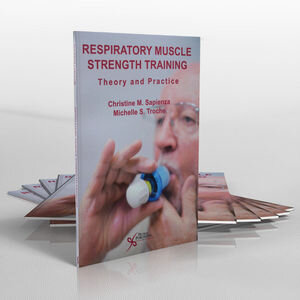
Weight Training for the Lungs: A Review of Respiratory Muscle Strength Training Theory and Practice
RMST is becoming widely used in the field of speech-language pathology for patients with impairments in speech, voice, ventilation, cough, and swallowing. Respiratory Muscle Strength Training Theory and Practice provides a foundational understanding of respiratory anatomy and physiology, primary structures involved, neuroanatomy and physiology of the respiratory system, common disease processes or disorders which can negatively impact respiratory strength and efficiency, implications for use of RMST to address these impairments, as well as treatment devices and protocols to be used in treatment. Case studies are provided detailing impacts of certain diagnoses on respiratory function, description of how RMST may be useful for that particular patient, and suggestions for treatment dose, load, and frequency based on the best available clinical evidence. The book ends by addressing frequently asked questions re: RMST such as the rationale, frequency of training, difference between devices, when to terminate training, and maintenance for respiratory devices. Examples of RMST devices and training instructions are also provided in the appendices.
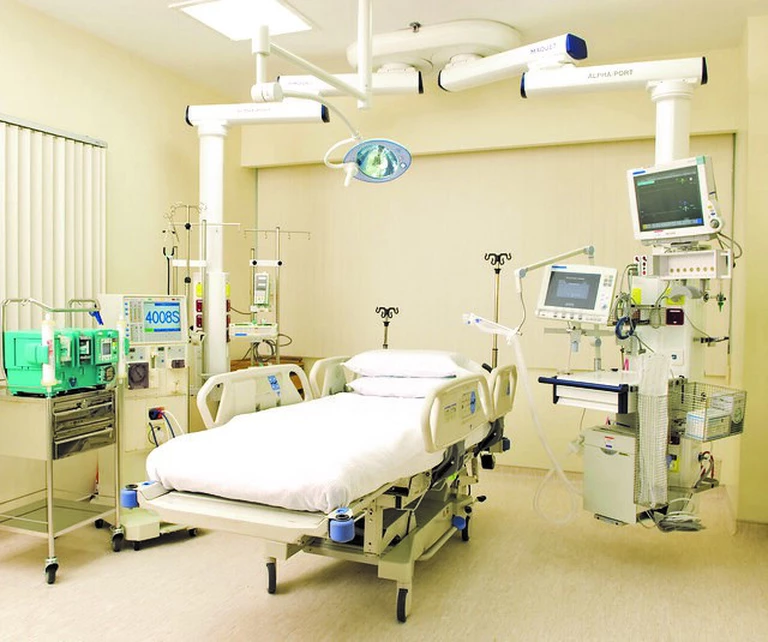
Journey to the ICU- Levels and ICU Categorization
Working in the ICU is our chance as medical speech-language pathologists to make first-line contributions to a patient’s care as a part of the multidisciplinary team. In order for a speech pathologist to navigate critical care and intensive care units and is first important to know what an ICU is, understand the different levels and categorizations of ICUs, and have a general knowledge of the key players, patients, goals, and resources available. If you are considering pursuing a career in critical care, dipping your toes into the ICU, or just wanting to gain more information, you’re in the right place!

Open Up! A Review of the ARK-J Trismus Intervention Certification Course
Trismus is a disorder resulting in a reduction in the mandibular (jaw) range of motion (ROM). Skilled trismus intervention can be an effective tool for motivated patients who have an order for trismus treatment, are able to follow instructions, can verbally or non-verbally communicate pain, and whose reduced mandibular ROM impacts them negatively with their quality of life. Such negative impacts include reduced ability to maintain oral hygiene, decreased speech intelligibility, impaired mastication, and difficult airway management. The ARK-J certification course was developed for SLPs by SLPs to provide evidence-based evaluation, diagnosis, and treatment involving progressive, active and passive jaw stretching tailored to the needs of the individual patient.
